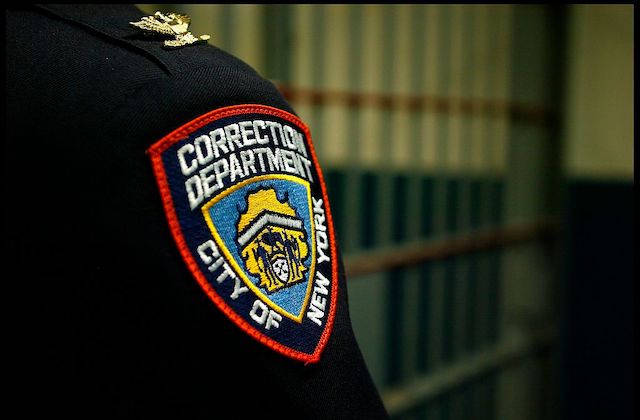As the world remains squarely focused on every update related to the coronavirus pandemic, New York Governor Andrew Cuomo on March 31 proposed legislation that will further endanger Black and Brown lives. His updates to New York’s budget would essentially undo the historic changes made to the state’s new bail reform law, which went into effect on Jan. 1, 2020. If Cuomo’s changes are approved by the state legislatures, he would effectively add fuel to the COVID-19 fire by sending tens of thousands of new people into New York jails, all while plunging people experiencing poverty into a vicious cycle of debt and incarceration.
As Colorlines reported recently, criminal justice advocates have called for the immediate release of low-risk incarcerated people and detained juveniles in an effort to curb the spread of COVID-19. Cuomo’s push to rollback changes to his state’s bail reform law, however, would have the opposite effect.
“Every other elected official across the country is thinking about how they can reduce their jail and prison population,” Rena Karefa-Johnson, New York state director for criminal justice reform for the advocacy group FWD.us, said in an interview with The Intercept. “But in New York, we have elected officials still trying to change legislation that would put thousands more people back in jail and slowing up an emergency budget process to do it. It’s wildly out of step with what’s happening across the country, and it’s wildly at odds with this narrative of New York taking COVID-19 seriously and keeping people safe. It’s bonkers.”
As Slate reports, Cuomo’s proposed changes are alarming:
Currently, New York’s law prohibits cash bail for almost all misdemeanors and nonviolent felony offenses. To be clear, the existing law still allows judges to incarcerate thousands of people awaiting trial; it preserves cash bail and pretrial detention for people accused of felonies. But the new proposed language would be far worse than the status quo under existing bail reform law. While the proposal would completely eliminate cash bail, it would also dramatically expand judges’ ability to “remand” defendants, or to detain them indefinitely before their trial without due process protections.
The governor’s proposal also permits pretrial detention for a much wider range of offenses and allows judges to make guesses about the future “dangerousness” of a defendant (the likelihood that they will commit a new violent crime) based on the “weight of the evidence,” which flouts the presumption of innocence before a case goes to trial. Additionally, New York law has never permitted judges to consider “dangerousness” when setting bail, so it’s possible that including a “dangerousness standard” in New York law would lead to unprecedented levels of pretrial incarceration.
As City and State NY.com points out, "advocates for criminal justice reform argue that giving judges this discretion would result in the same biases that saw poor, minority defendants disproportionately incarcerated pretrial while they are still innocent in the eyes of the law."
Scott Levy, chief policy counsel for the Bronx Defenders, also points to the danger of Cuomo’s proposal to detain "persistent offenders," which refers to people who commit misdemeanor offenses while awaiting trial. “Remanding people for misdemeanors is something that has never been done in New York. The proposal would put vast numbers of people charged with low-level misdemeanors at risk of indefinite pretrial detention with no possibility of release,” Levy told Slate.
According to Slate, the “persistent offender” category specifically includes crimes involving “harm to property," and gives the example of someone accused of two shoplifting offenses being jailed under Cuomo’s planned changes.
Cuomo reportedly felt pressured to make changes to New York’s bail laws when the NYPD started blaming the new laws for a spike in crime. “We’re going to work on it because there are consequences we have to adjust for,” Cuomo said in January of this year. However, as Slate reports, those fears were unfounded:
Law enforcement officials’ uproar over bail reform was not grounded in reality. After the new bail reform law went into effect, New York City continued to be one of the safest big cities in America, where crime rates are lower than any point since the 1950s. At the same time, bail reform is helping people accused of crimes keep their jobs and support their families instead of suffering in jail. According to the Data Collaborative for Justice, existing bail reform law will allow legally innocent people to remain free in 20,000 cases in 2020—and that’s just in New York City.
Cuomo hopes state legislatures will pass his proposed changes imminently; however, according to The Intercept, "several legislators have already been diagnosed with coronavirus infections, and the statehouse has been evacuated, with legislators sent home to shelter in place, unable to meet or debate."
